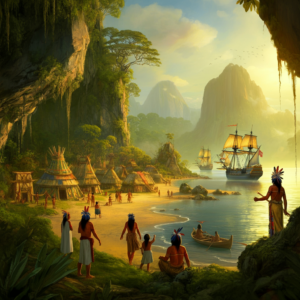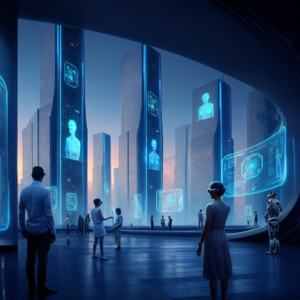Imagine waking up one day to a world without social media—no Facebook, Instagram, TikTok, LinkedIn, or Twitter. A global ban on social media platforms would disrupt the way we connect, communicate, and market ideas overnight. But beyond the initial shock, what would this alternate reality look like?
For digital marketers, social media users, and business owners, understanding the ripple effects of such a scenario is more than a fun hypothetical—it’s a crucial exercise in adaptability and forward-thinking. This blog explores how this drastic shift might impact marketing, communication, SEO strategies, and the opportunities it could create for innovation.
The Immediate Impact on Digital Marketing
Social media has become the lifeblood of digital marketing. From building brand awareness to driving sales, platforms like Instagram and Facebook empower businesses to directly connect with their target audience. A global ban on social media would leave marketers scrambling to recalibrate their strategies.
Loss of Advertising Channels
Social media advertising accounts for over $200 billion globally. Without these platforms, businesses would lose a powerful, data-driven avenue to reach their ideal customers. Marketers who rely heavily on Facebook Ads, Instagram influencers, or TikTok collaborations would need to seek alternative advertising methods, such as traditional media or paid search ads.
Consumer Engagement Challenges
Social media allows real-time engagement with audiences. Through comments, DMs, and live videos, brands interact with customers on a personal level. Without these touchpoints, maintaining customer relationships would become significantly harder, forcing businesses to lean heavily on email marketing, chatbots, or other direct channels.
Content Distribution Shift
Brands would need to refocus their attention on their own platforms—think websites, blogs, and newsletters. Content would no longer go viral with a single Instagram post or tweet. Instead, businesses would have to foster loyal website visitors, crafting compelling articles, videos, and guides to bring traffic directly to their digital doorstep.
How Would People Communicate Without Social Media?
For individuals, social media dominates how we connect, share information, and express ourselves. A global ban would alter human communication in profound ways.
Rise of Messaging Apps
With platforms like WhatsApp likely unaffected by a broader social media ban, many people would rely on messaging apps to share news, updates, and multimedia content with friends and family. Group messaging could take the place of large-scale public sharing.
Growth of Forums and Niche Communities
Interest-based forums like Reddit or private Slack and Discord channels could see a surge in popularity. People might gravitate toward closed, topic-specific platforms to replace the broad reach of traditional social media.
Increased Role of Offline Networking
Without digital networking tools, people might reflect more deeply on the value of face-to-face communication. Small businesses might organize in-person events, and professionals could attend more trade shows, meetups, and conferences to stay relevant.
What Could Replace Social Media?
A vacuum in communication platforms presents opportunities for innovation. While it’s challenging to predict what might emerge, history has shown us that new technology often rises to fill the gaps.
Decentralized Platforms
Decentralization is already a buzzword in tech, and it could define the next era of communication. Peer-to-peer networks that empower individuals rather than corporations could become the go-to solution for online engagement.
Privacy-Centric Platforms
The demand for privacy and control over personal data is growing. Businesses might develop platforms that allow users to safely interact and share without the downsides of traditional social media, such as intrusive algorithms and data monetization.
Enhanced Use of AI
AI-driven tools could become more prominent, automating communication while delivering hyper-personalized experiences. For instance, AI bots could replace influencers by crafting highly tailored recommendations for individual users.
The SEO Landscape Without Social Media
Social media and SEO are deeply intertwined. Platforms drive massive traffic to websites, spark viral content, and generate backlinks, all critical elements in search engine ranking. Without social media, SEO strategies would need to stand on their own.
Rebalancing Website Traffic Sources
Marketers would face the challenge of creating diversified traffic sources. Organic search, direct traffic, and referral links would take center stage, emphasizing the importance of high-ranking content on Google.
Greater Focus on Content Quality
Gaining visibility would depend even more on producing high-quality, search-optimized content that attracts organic backlinks. Written blogs, video tutorials, and product pages would need to go above and beyond to stand out in a crowded digital space.
Importance of Link-Building
Backlinks remain a key ranking factor for SEO. Without the ease of sharing links via social posts, businesses would need to heavily invest in outreach, PR efforts, and collaborations to secure valuable backlinks from trusted sources.
Adaptation & Opportunity in a Social Media-Free World
While a global social media ban would undoubtedly create challenges, with disruption comes opportunity. Businesses and marketers willing to adapt could find new, exciting ways to thrive.
The Return to Traditional Media
Television, radio, and print media could regain some prominence as businesses look for ways to reach wide audiences. Creative new campaigns in these mediums might once again captivate consumer attention.
Building Stronger Communities
Instead of focusing on followers and likes, brands could double down on relationship-building. By nurturing a more engaged and loyal customer base through email newsletters, membership programs, and exclusive events, businesses could strengthen long-term connections.
Leveraging Influencer-Less Strategies
With social media gone, influence wouldn’t disappear—it would just evolve. From product placement in TV shows to grassroots word-of-mouth marketing, there are countless ways to shape consumer behavior outside of a feed.
Innovation in Tech Solutions
The social media ban would undoubtedly lead to new technology solutions to bridge the gaps. Businesses with a strong commitment to innovation could harness AI, blockchain, and virtual reality to create futuristic platforms for engagement.
Reimagine the Future of Connection
A global ban on social media might feel catastrophic to those of us who rely on it daily. However, it also highlights the importance of adaptability, creativity, and innovation in marketing and communication.
For digital marketers, this is an opportunity to return to the basics—prioritizing quality content, meaningful engagement, and diversified outreach strategies. For businesses, it’s a chance to build resilience by reducing dependency on any one channel.
What do you think would happen in a world without social media? Share your thoughts in the comments or join our email newsletter for more insights like this.







